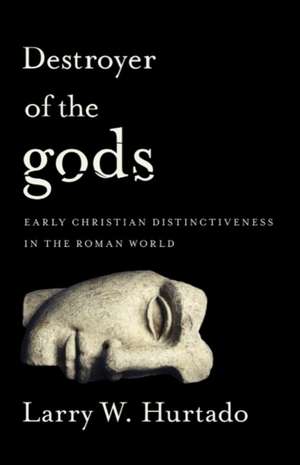Destroyer of the gods: Early Christian Distinctiveness in the Roman World
Autor Larry W. Hurtadoen Limba Engleză Paperback – 30 apr 2017
Preț: 200.77 lei
Nou
Puncte Express: 301
Preț estimativ în valută:
38.42€ • 39.97$ • 31.72£
38.42€ • 39.97$ • 31.72£
Carte tipărită la comandă
Livrare economică 15-29 aprilie
Preluare comenzi: 021 569.72.76
Specificații
ISBN-13: 9781481304740
ISBN-10: 1481304747
Pagini: 304
Dimensiuni: 139 x 215 x 26 mm
Greutate: 0.39 kg
Editura: Baylor University Press
Colecția Baylor University Press (US)
ISBN-10: 1481304747
Pagini: 304
Dimensiuni: 139 x 215 x 26 mm
Greutate: 0.39 kg
Editura: Baylor University Press
Colecția Baylor University Press (US)
Cuprins
PrefaceIntroduction Chapter 1. Early Christians and Christianity in the Eyes of Non-ChristiansChapter 2. A New Kind of FaithChapter 3. A Different IdentityChapter 4. A "Bookish" ReligionChapter 5. A New Way to Live ConclusionAppendixNotesIndex of Ancient SourcesIndex of Subjects and Modern Authors

